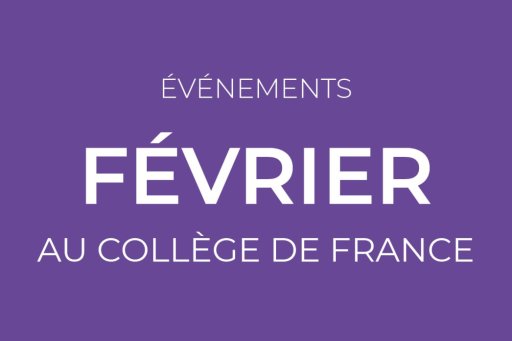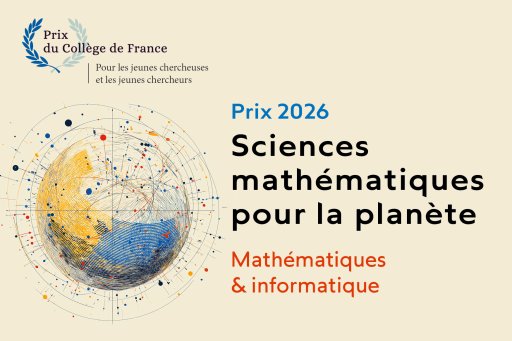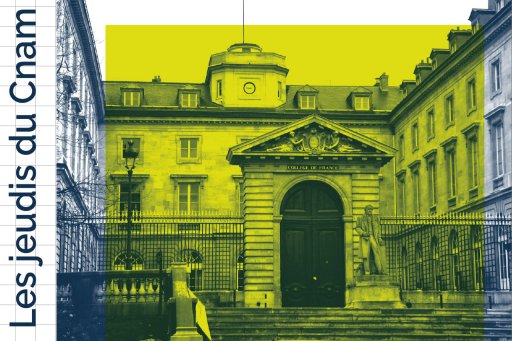While Collège de France is fortunate to benefit from a loyal and assiduous audience, broadening, renewing and diversifying its audience is also a major challenge for the organization, in order to best fulfill its public service mission and prepare for the future. This challenge hinges on a better understanding of the Collège de France's audience, both those who attend its lectures (around 100 000 each year) and the even greater number of those who use the various digital channels offered by the institution (videos and podcasts totalling over 10 million views and listens per year). Added to these figures are those generated by visits to other events organized by the establishment (European Heritage Days, Fête de la Science, lecture series, tours, exhibitions, etc.) and the services offered by the Collège de France libraries and archives, totalling over 50 000 visitors each year.
Two major surveys were carried out in 2023-2024, under the responsibility of Prof. François Héran, holder of the Migrations and Societies Chair,to gain a better understanding of these audiences, their composition, uses and expectations. They followed an initial survey conducted in 2009-2010 by Prof. Henri Léridon.
In particular, the aim was to gain a better understanding of changes in audience practices, as well as the socio-demographic aspects characterizing these audiences, their habits in attending and consulting lectures at the Collège de France, and their degree of satisfaction. The results of these surveys are based on the traditional distinction between " scientifiques " and " littéraires ", without ignoring the diversity of disciplines within these two groups, and taking into account the approximations induced by such a grouping, which is nevertheless relevant to the overall analysis, as the data analysis reveals.
The analysis of the results of the two surveys carried out by Pr François Héran is available to the public via the download link at the bottom of this page. However, a few key points are made below, concerning both the methodology and the results.
The first survey concerned the public attending lectures in the amphitheatres of the Collège de France : conducted in 2 waves from March 2023 to May 2024, it covered the lectures of 52 chairs in total (43 statutory chairs, 8 annual chairs and 1 multi-year international chair), producing over 4 700 usable questionnaires, with a very high return rate (85 %).
The second survey aimed to gain a better understanding of digital audiences, across the full range of Collège de France digital offerings and services (videos, podcasts, documentary and archival offerings, editorial offerings) : launched in February 2024 on the basis of an online form, it yielded 1 832 responses.
The data collected enabled us to draw up a complete portrait of the audience: the majority are over 65 years of age (63 %), slightly more male (53 %) and mainly from higher socio-professional categories, with 79 % of graduates at Bac +4 level or above. Unsurprisingly, the vast majority of these people live in Paris and the Paris region.
There are significant distinctions between the audiences of literary and scientific chairs. In general, literary chairs attract a more female, older audience, focused on personal culture, whereas scientific chairs, especially those in physics, chemistry, mathematics and computer science, have a higher proportion of younger male students and PhD candidates, whose motivations lie in training and research. The analysis of Chair attendance, which is also based on other internal statistics, also reveals a clear disparity between disciplines, with literary Chairs generally attracting a much wider audience than scientific Chairs.
Analysis of the online survey forms, although based on a relatively small sample compared with the 2 million annual visitors to the site and the 4 million views of Collège de France videos, produces results that are ultimately fairly consistent with those for face-to-face audiences. However, digital channels have made it possible to rejuvenate the audience (the proportion of 35 to 64 year-olds is greater, with a gain of 26 % in this age group, even though since the previous survey in 2009, the proportion of senior citizens has doubled among online users) and to achieve greater geographical diversification, with, in particular, 12 % of respondents living abroad. Another singularity is that the online audience tends to be more eclectic, freely exploring various fields covered by the establishment's different chairs.
This general profile, both in-person and online, paints a picture of a large, loyal audience, extremely enthusiastic and grateful to Collège de France for its public service mission, but also relatively homogeneous in its socio-demographic characteristics. Collège de France intends to use the results of these surveys to broaden and diversify the range of people who benefit from its offerings, in particular to attract more young people, students and working professionals, in line with the audience policy it intends to draw up as part of its institutional project for the period 2026-2030. It will also take into account the comments and suggestions made by the public in order to improve the quality and accessibility of its offer, particularly with regard to the infrastructures and procedures for welcoming the public on site, the improved visibility of the services offered by the libraries and The Collège de France Publishing Department, as well as the ergonomics and functionalities of the website.
Collège de France would like to extend its warmest thanks to all those who responded to these surveys for their time and participation.









